After several days of collaboration during free medical clinics, the surgical and anesthesia teams of the “Africa Cries Out” surgical group had developed seamless coordination.
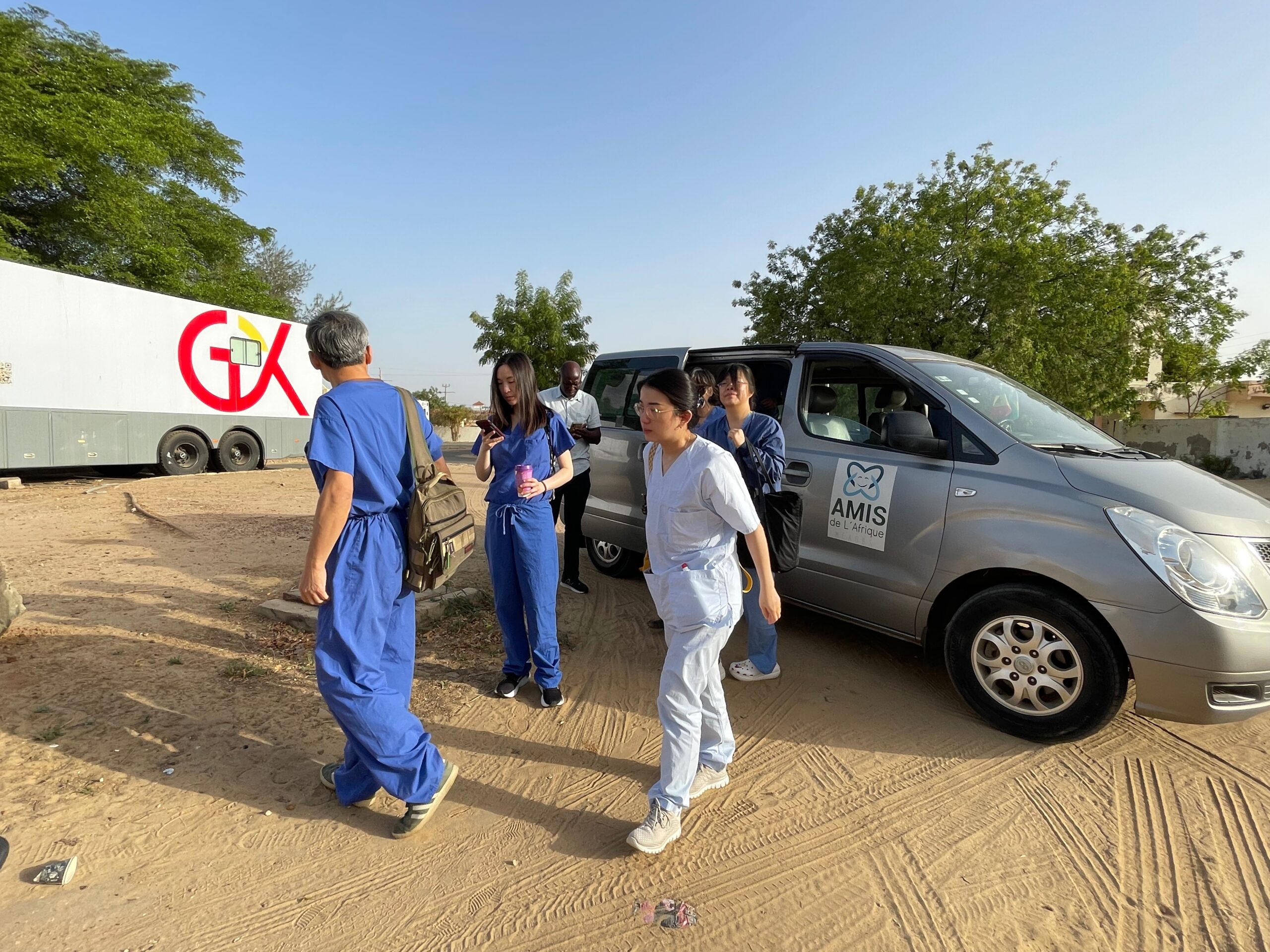 The surgical team arriving at the hospital for the day’s surgeries.
The surgical team arriving at the hospital for the day’s surgeries.
On the fourth day, the first surgical patient was brought into the operating room. The patient was a 73-year-old woman who had long suffered from uterine prolapse. The plan was to perform a transvaginal hysterectomy and pelvic floor repair.
Preoperatively, the patient reported no discomfort, and the procedure began routinely. The procedure began step by step: connecting the blood pressure monitor, pulse oximeter, and ECG, followed by administration of combined spinal and epidural anesthesia. While waiting for the anesthesia to take effect, the team noticed an abnormally rapid beeping from the oximeter. One team member, Dr. Tong, an anesthesiologist, palpated the patient’s pulse and confirmed, “The heart is indeed beating very fast”. By then, the ECG tracing on the monitor was fully displayed, and several anesthesiologists gasped simultaneously—the patient had developed supraventricular tachycardia (SVT) with a heart rate of 210 beats per minute, accompanied by a blood pressure spike to 205/120 mmHg. Dr. Tong immediately performed carotid sinus massage in an attempt to halt the SVT. Although the heart rate and blood pressure dropped slightly, the SVT episodes persisted.
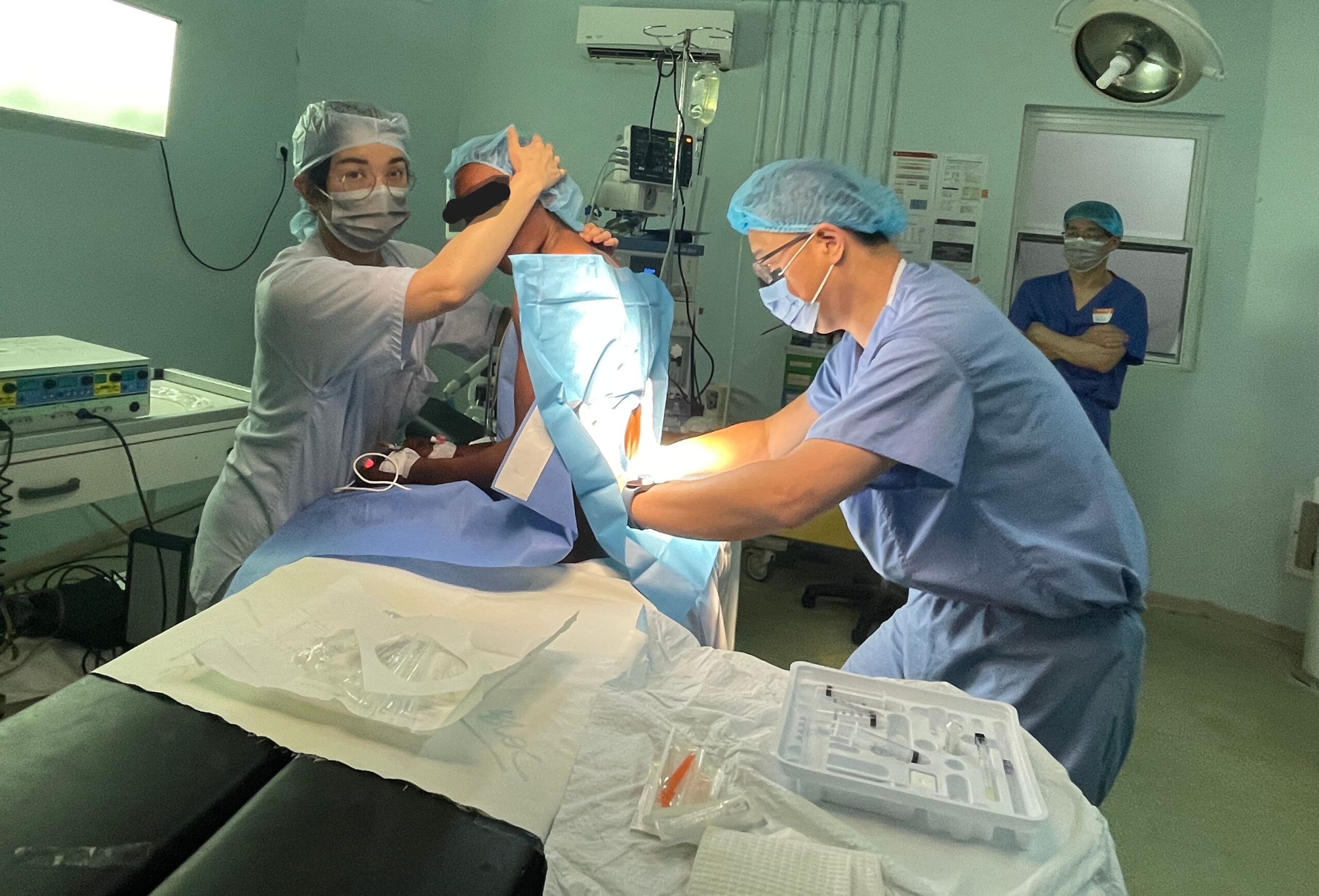 Anesthesia being administered to the patient.
Anesthesia being administered to the patient.
This left the anesthesia team in a dilemma: proceeding with surgery under such unstable conditions carries significant risks, but canceling the procedure was equally fraught. In Senegal, patients had waited months for this opportunity, and postponing surgery requires extreme consideration.
After a brief discussion between the hospital’s anesthesiology and the Africa Cries Out team, it was decided to observe the patient’s response to sedation, hoping to reduce sympathetic nervous activity and stabilize her vitals. Dr. Jiang also prayed for the patient. Ten minutes later, the SVT episodes continued intermittently, and her hypertension and paroxysmal SVT persisted. Through translation by local doctors, the team learned the patient had a history of refractory hypertension. Dr. Zhao, another team anesthesiologist, raised the possibility of adrenal pheochromocytoma. If confirmed, proceeding without proper preoperative preparation would be highly risky.
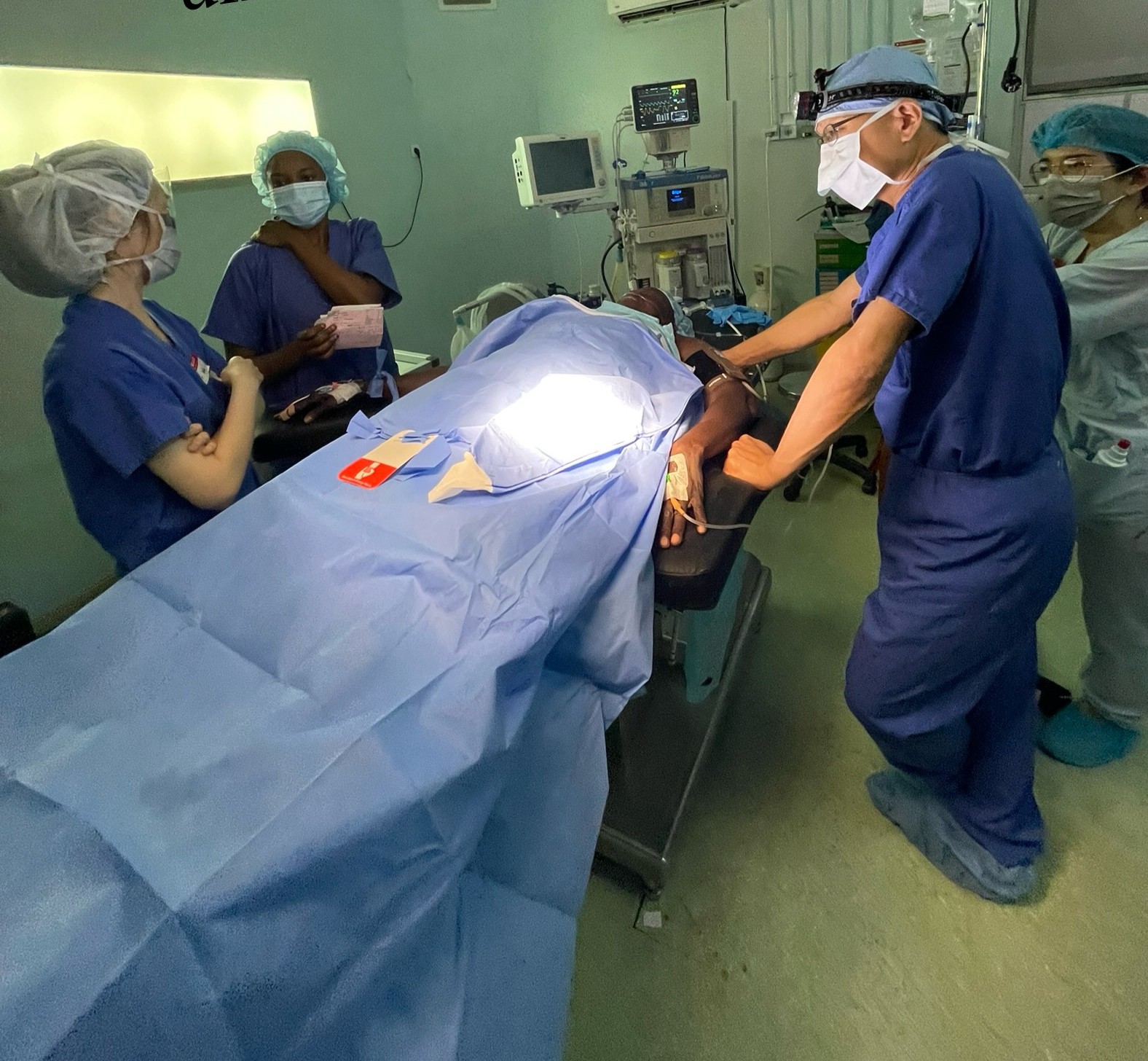 Waiting for patient’s heart rate to stabilize.
Waiting for patient’s heart rate to stabilize.
After further deliberation, both teams unanimously concluded that they had exhausted all efforts to stabilize the patient. Given the circumstances, the safest course of action was to cancel the surgery and reschedule it for a later date. This was a heartbreaking decision, particularly for the patient, who had traveled far and clung fiercely to hope for relief. Yet, as physicians, their paramount duty was to prioritize patient safety above all else. While absolute safety in clinical medicine is an illusion, every decision must rest on a thorough assessment of the patient’s condition and potential risks. After the decision was made to postpone the elective procedure, Alex, a medical student accompanying the team, quietly approached me and murmured, “Risks vs. benefits—I learned it in a real case this time”. I replied, “And the collaboration, deliberation, and shared decision-making among physicians, these collectively shape the most reasonable course of action”.
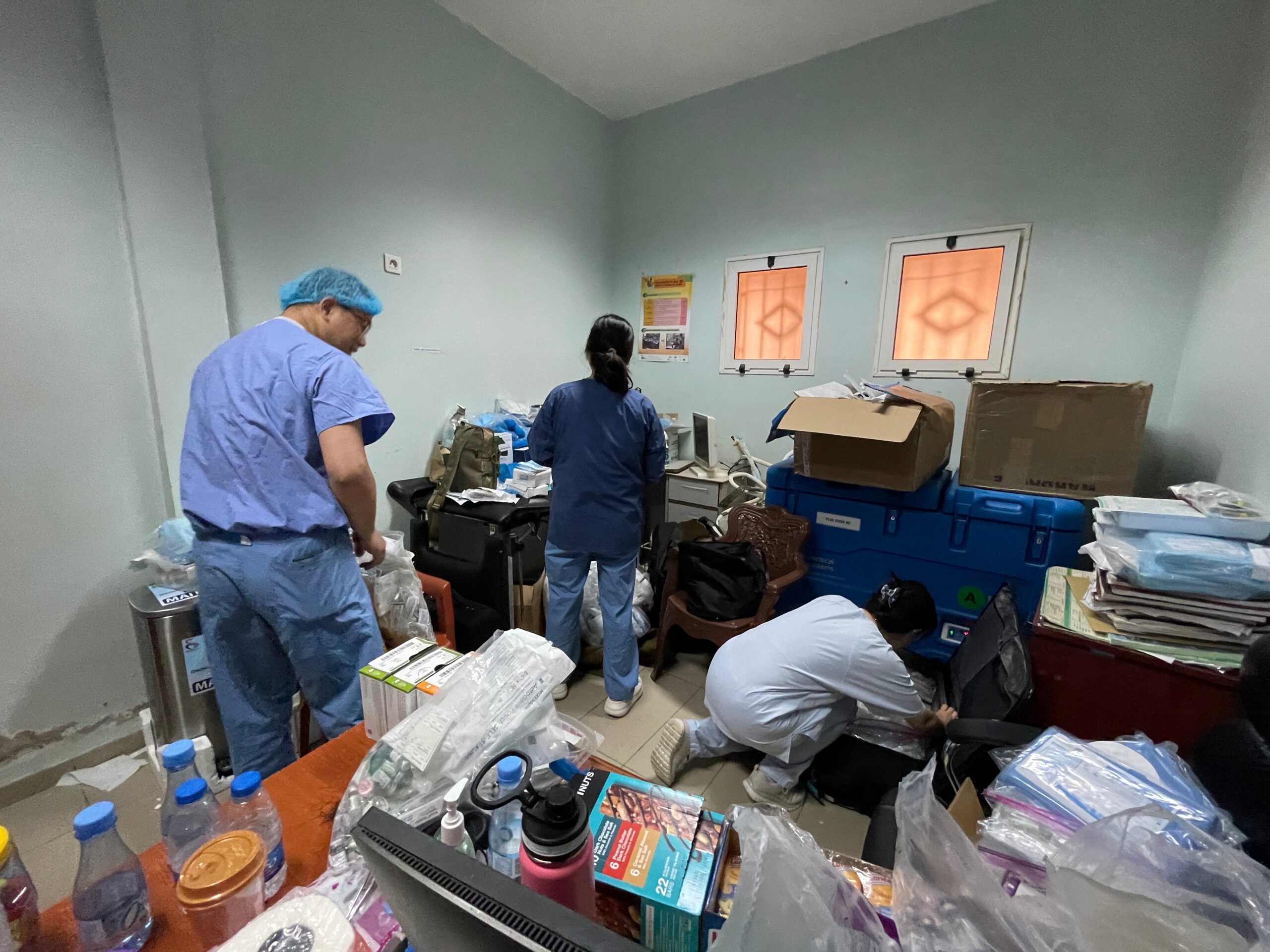 Getting everything ready before going to the operating room.
Getting everything ready before going to the operating room.
To ensure accountability, the team contacted Dr. Abdullah, the local hospital’s Obstetrics & Gynecology Department’s director, to explain the situation in detail. The team recommended that the patient first undergo adrenal and cardiac evaluations, with Africa Cries Out Foundation covering all associated costs. Once the patient’s condition is stabilized, Dr. Abdullah will perform the surgery. Dr. Jiang carefully explained the decision to the patient, who, despite her disappointment, expressed understanding and gratitude for the team’s efforts.
The “Africa Cries Out” surgical team often faces such challenges: surgical plans are determined by local Senegalese doctors, but limited healthcare infrastructure often leads to overlooked comorbidities, complicating preoperative preparations. While the team is driven by a strong desire to help, patient safety remains paramount. Every decision must balance risks and benefits through thorough assessment.
One of the four pillars of medical ethics is non-maleficence: “First, do no harm.” Though every physician acts with goodwill, treatment must adhere to this principle.
Before departure on our last day in the hospital, local doctors bid us farewell warmly, inviting us to return next year.
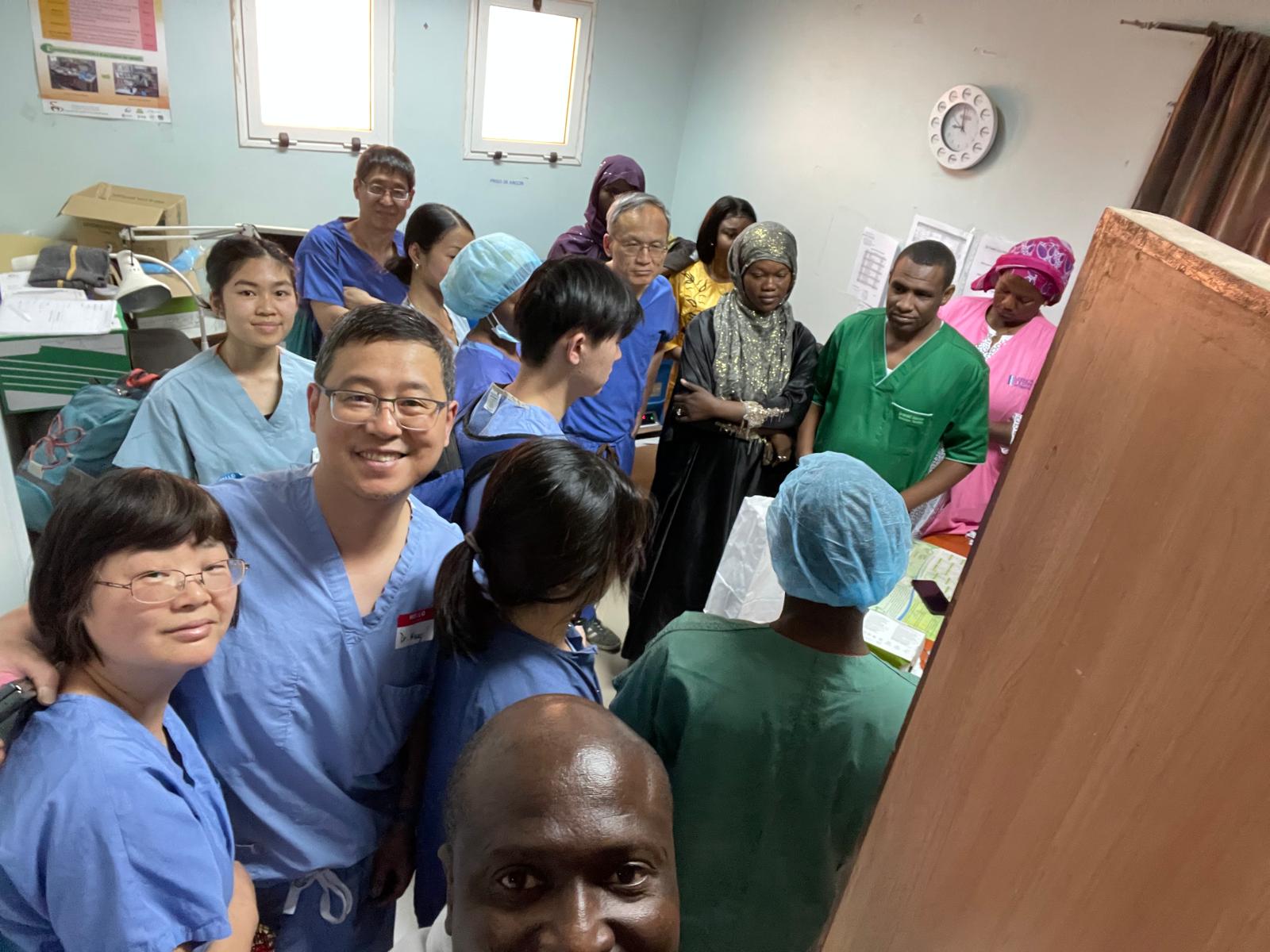 The surgical team with some local doctors on our last day at Fatick Regional Hospital.
The surgical team with some local doctors on our last day at Fatick Regional Hospital.
About the Author: Anesthesiologist at Midway Medical Center, Pittsburgh, USA ; 2025 Volunteer for “Africa Cries Out” Medical/Surgical Mission Trip
****************************************
If you are moved and willing to support our African ministry, here are the ways to donate:
1) Write a check to Africa Cries Out and send it to Jun Xu, MD, 1171 E Putnam Avenue, Riverside, CT06878, USA. You will receive a tax-free receipt recognized by the IRS.
2) Online Credit Card Donation: https://africacriesout.net/ (credit card company will charge a handling fee)
3) Zelle: Africacriesout@gmail.com
Our team solemnly declares that 100% of your donation will be used for the people of Africa, and we do not get even a penny of administrative fees.
Jun Xu WeChat: jun9174343767
电子邮件:Africacriesout@gmail.com
Public WeChat account: LifeExploring (人生天路)
Web page: https://africacriesout.net
Translator/Reviewer: Cao Juanjuan
Editor: Doris Cruz

